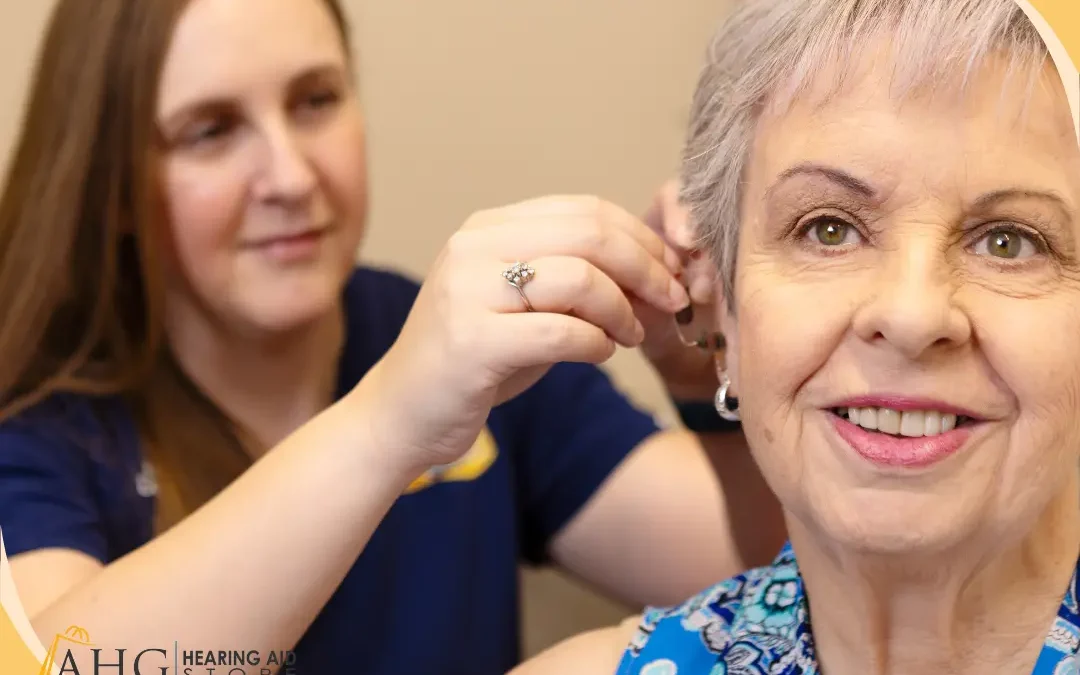 Hearing loss is often regarded as a normal part of aging, an inevitable consequence of the passage of time. However,recent research highlights a critical link between untreated hearing loss and cognitive decline, including an increased risk of dementia.
Hearing loss is often regarded as a normal part of aging, an inevitable consequence of the passage of time. However,recent research highlights a critical link between untreated hearing loss and cognitive decline, including an increased risk of dementia.
The good news is that treating hearing loss can play a significant role in delaying or possibly even preventing cognitive decline. Here, we’ll discuss how addressing hearing loss can benefit cognitive health.
The Connection Between Hearing Loss and Cognitive Decline
Multiple studies have established a link between hearing loss and cognitive health. Individuals with untreated hearing loss are at a higher risk of developing cognitive impairments, including dementia. Here are some of the key reasons why this connection exists:
- Reduced Auditory Stimulation: The brain requires auditory input to stay active and healthy. When hearing is impaired, the auditory cortex receives less stimulation. Over time, this can lead to atrophy and reduced cognitive function.
- Increased Cognitive Load: When hearing is compromised, the brain has to work harder to process sounds. This diverts resources from other cognitive functions such as memory and thinking.
- Social Isolation: Hearing loss often leads to social withdrawal due to difficulties in communication. Social isolation is a well-known risk factor for cognitive decline and dementia.
How Treating Hearing Loss Can Affect Cognitive Decline
Addressing hearing loss can have a profound impact on cognitive health. Here’s how:
- Enhanced Auditory Stimulation: Using hearing aids or other hearing devices ensures that the brain continues to receive the auditory stimulation it needs to stay healthy and active. This stimulation helps maintain the brain’s auditory cortex and supports overall cognitive function.
- Reduced Cognitive Load: Hearing aids can significantly improve sound clarity and reduce the effort required to understand speech and other sounds. This reduction in cognitive load allows the brain to allocate resources to other cognitive tasks, thereby supporting better overall cognitive function.
- Improved Social Interactions: Treating hearing loss can significantly enhance communication, enabling individuals to participate more actively in social activities. Greater social engagement is linked to improved cognitive health and a reduced risk of dementia.
Practical Tips For Treating Hearing Loss Effectively
Treating hearing loss is about more than simply improving hearing. It’s a vital strategy for maintaining cognitive health and overall quality of life. Below are some simple tips for successful hearing loss treatment:
1. Admit that you might have hearing loss.
Are your friends and family members constantly telling you to get your hearing checked? If so, it might be time to listen! The sooner you find out whether or not your hearing is impaired, the sooner you can get effective treatment.
2. Schedule a hearing test and thorough hearing evaluation.
The first step to solving any problem is identifying WHAT the problem is. When it comes to hearing loss, you’ll want to know the type and severity of hearing loss you have. This can easily be determined through a hearing test and hearing evaluation with an audiologist. Of course, this can also reveal if you DON’T have hearing loss.
3. Explore your options for treating hearing loss.
If you ARE diagnosed with hearing loss, talk to your audiologist about the best treatment options. Involving your spouse or other family members in the process can often be helpful, too. That way, they understand what you’re going through and how they can help.
4. If needed, find the best hearing aids.
One of the most common methods for treating hearing loss is through the use of hearing aids. If this is recommended by your audiologist, they can help you narrow down your options. Ideally, the best hearing aids are the ones that meet your hearing needs but also fit well within your budget and lifestyle requirements.
5. Continue to manage your hearing health.
Contrary to what some people believe, treating hearing loss is not something that is done just once. Instead, it’s a journey that starts with a hearing loss diagnosis. Once you have begun hearing loss treatment, it’s important to schedule regular hearing check-ups and evaluations with your audiologist because your hearing needs and abilities will change over time. You’ll also need routine hearing aid maintenance and adjustments to ensure your devices are working properly.
Treating Hearing Loss in Mesa and Scottsdale, AZ
If you’re looking for friendly and professional hearing loss treatment in Mesa or Scottsdale, AZ, we’re here at help! We have clinics located in Mesa, North Scottsdale, and South Scottsdale and each one is staffed with experienced audiologists who care about your hearing health. Take the first step toward treating hearing loss and helping to delay cognitive decline by scheduling an appointment with us today!





